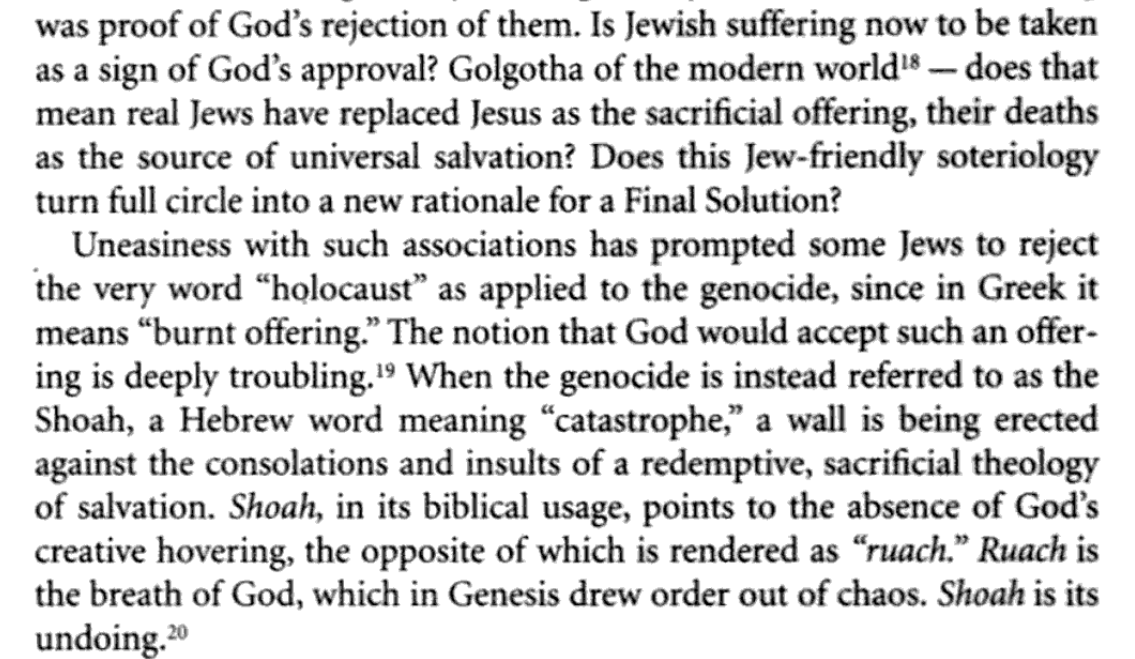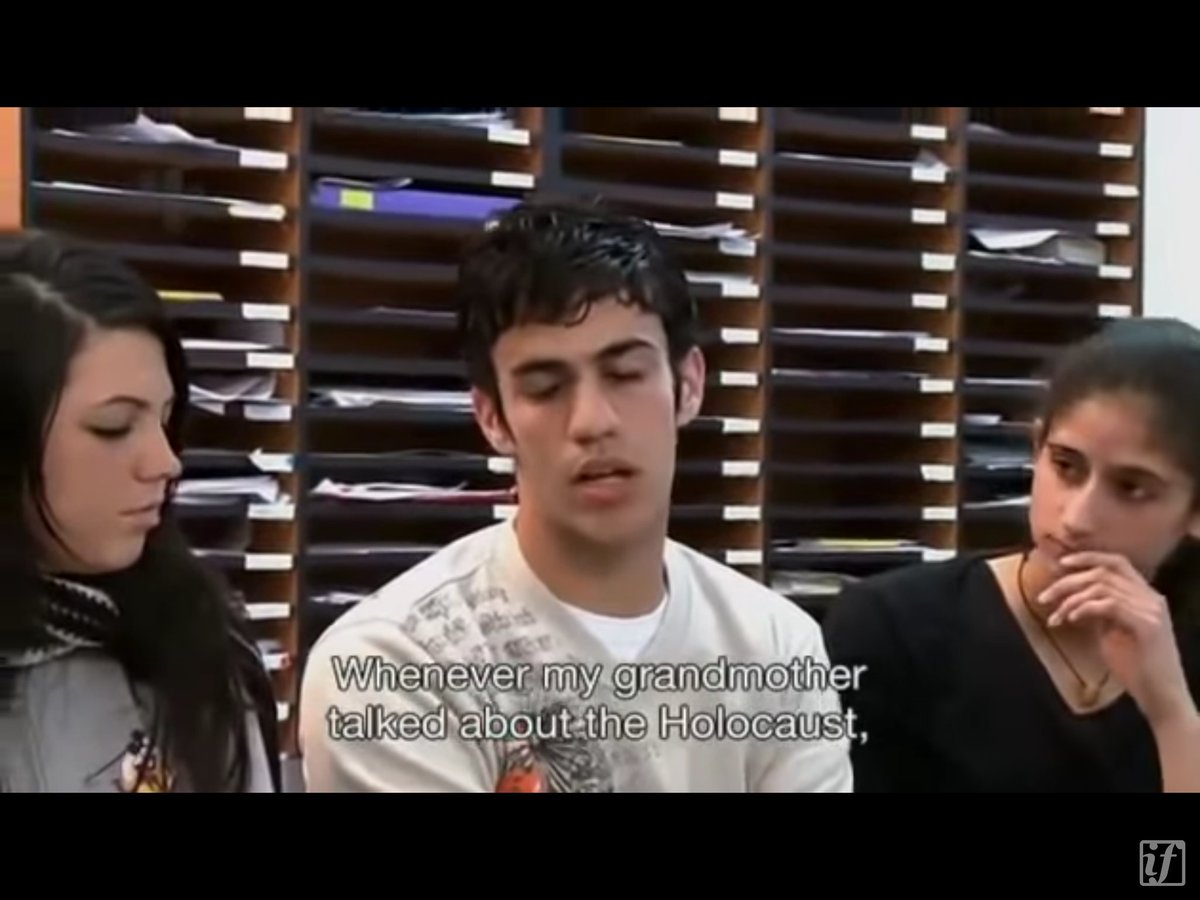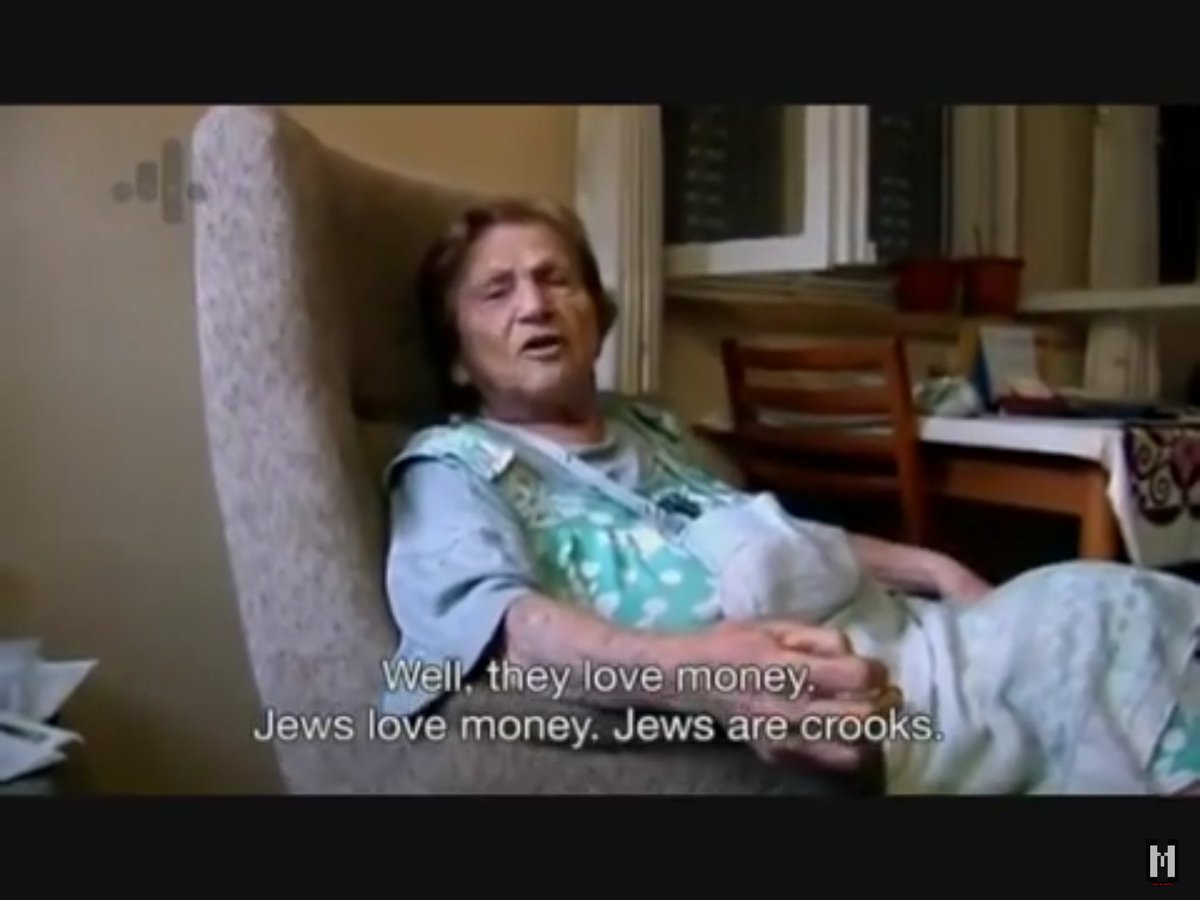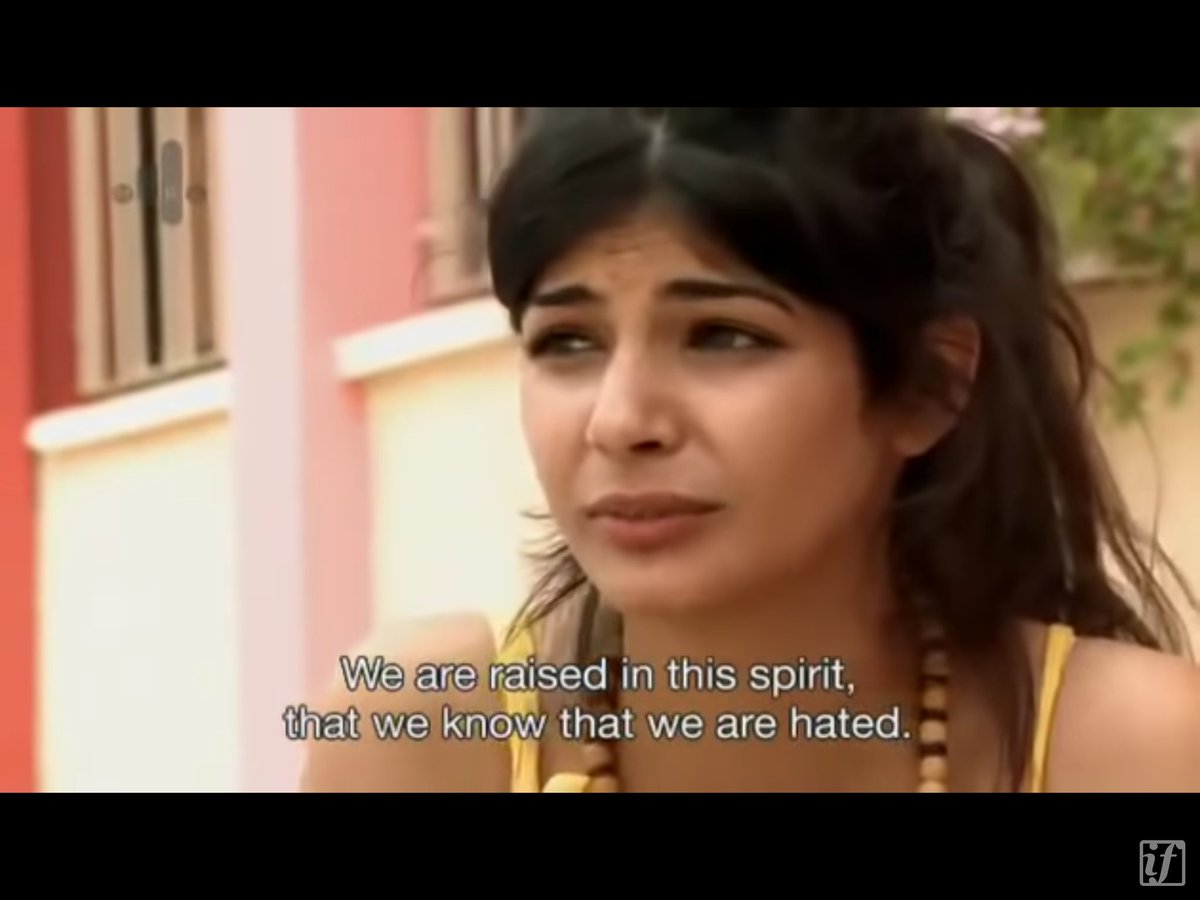hartman.org.il/Blogs_View.asp…
Their shock, their horror, their incomprehension.
I've always been deeply uneasy with the idea of concentration camps as sacred ground, but was unable to articulate why until I read "Constantine's Sword."
There's another discussion to be had here, one that may never be resolved, about what it means to put a cross at Auschwitz.
At the same time, the cross has a far longer history as a symbol under which Jews were persecuted and murdered than the swastika, and Hitler was building on millennia of Christian hatred for Jews.
The victims of the Shoah, of course, didn't have a choice. The Catholic nun born to Jewish parents was Jewish in the Nazis' eyes.
Jewish suffering as punishment for rejecting Jesus seemed declasse, confronted with the horrors of Nazi genocide, so the story changed.
The Jews of Europe, then, in this imagining, are subsumed into Jesus himself, rather than into Christianity, becoming a sacrificial offering.
If the suffering and death of real, living Jews is merged into that narrative, does it become necessary that *we* suffer and die?
And does it all, at some level, become entertainment?
Hillel, in Pirke Avot 2.6
Because it's not reflected in our ritual. While we might reference it in liturgy about death, about suffering, the liturgy itself doesn't include it.
(I see this mostly from Orthodox writers.)
The author notes that the survivors are the only ones who can justify God after the Shoah. The rest of us have no right.
One hears frequently of survivors who go to shul "to pray to the God I don't believe in," which is very Jewish.
(Ironic here that the Reform Jewish (liberal) thinker here says that the Shoah means we should rekindle faith in God, while the Orthodox thinker says it means we *can't* have faith in God anymore.)
After the Shoah, Fackenheim suggested a single addition: we shall not grant Hitler a posthumous victory.
Redeem me, destined one —
— Who are you, that your command should be heard?
And grass language answered me: God.
I once lived in your word
"Our God is trapped
In the poisoned grass,
Where the blood of our brothers cries out,
Where the ants heave centuries on their backs..."
There is nowhere for God to hide.
Get down on your knees and let
This precious earth soften for the weight of you."
Few Jews--the people Israel, the people named "God-wrestlers"--I think, are willing to settle for anything that simple.
That, more than anything, tracks for me.
For those who embrace Jewish peoplehood, traditions, thought, writings, practice...
We know that, like death, pain will find its way into our lives. But like our ancestors, Avraham and Sarah, we keep our doors open, try to keep our lives hospitable to joy.
We live deeply, we find ways to keep our senses of awe and wonder and gratitude and connection alive, and above all, we *remember*. We make room for those who came before us.
That's the only meaning I'm willing to take from all this.











